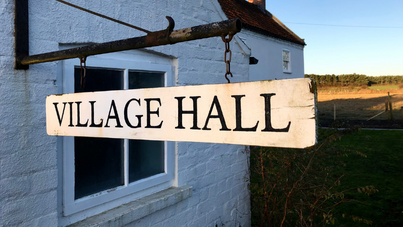This article is one in a series looking at the impact of public rights on land intended for development. In this article, we will look at the impact of land or buildings being listed as Assets of Community Value.
If you intend to develop or sell your land for development then a listing of the land (or a building on it) as an Asset of Community Value (ACV) could cause significant delay and cost or prevent the development from taking place all together. Most types of building or land can be the subject of a nomination as an ACV and could include village shops, pub, community centres, libraries, allotments and land (in respect of which see further below). Premises that are primarily residential and places of worship cannot be nominated.
The ACV regime
Under the Localism Act 2011 (“the LA”), communities (through the relevant parish council, community interest groups or companies, non-profit companies, charities which have a local connection to the relevant asset) are given a right to bid for and buy local land that is considered to have community value.
Land can be listed as an ACV if in the opinion of the local authority:
- Its actual current use furthers the social well-being or social interests of the local community;
- The current use in 1) above is not “an ancillary use”; and
- It is realistic to think that there can continue to be non-ancillary use which will further the social wellbeing or social interests of the local community.
When an owner of land listed as an ACV wishes to dispose of the land, the community is given the opportunity to raise funds and make a bid for the land. Whilst the owner is not obliged to accept an offer made by a community group, the LA imposes a six month moratorium, during which the owner of an ACV can only accept bids from community groups.
Bare land can be an ACV
Pursuant to the case of Oliver’s Battery Ltd v Winchester City Council and Another (CR/2019/0001) it was decided that bare land could be listed as an ACV. The following findings were made:
- The fact the agricultural land in this case was left fallow did not mean that agriculture had ceased to be an actual current use of the land, or that this use was only ancillary.
- The public’s recreational use of the land was also an actual current use and this was not ancillary to its use as agricultural land. The recreational use was also not an ancillary use of the public rights of way.
- The fact that the recreational use of the land was unlawful did not prevent it being a use which furthered social well-being or social interests and there was no requirement that the actual use was lawful.
- Although the land owner was planning to develop the land for housing, this did not mean it was unrealistic to think that the recreational use could continue as it was not certain that planning permission would be granted or that the scheme would go ahead.
Consequence of an ACV listing
If your land is listed as an ACV you are not prevented from selling the land but you must comply with the moratorium provision of the LA, otherwise any disposal will be ineffective. The moratorium provisions provide as follows:
- If the owner of an ACV wants to dispose of it, the owner must notify the local authority. This triggers an initial six week moratorium period during which a community interest group (CIG) has the opportunity to give notice to the local authority that it wants to be treated as a potential bidder for the ACV. If no request is made during that period, the owner of the ACV can dispose of ACV as it wishes at any time within the period of 18 months from the owner’s notice notifying the local authority of its intention to sell.
- If during the initial six week period a CIG does give notice that it wishes to be treated as a bidder a six month period applies during which the owner cannot dispose of the ACV although the owner can continue to market the ACV but cannot exchange contracts for the sale except to a CIG. This six month period gives the CIG the opportunity to raise the funds required to acquire the ACV. Following the expiry of the six month period, the owner is free to dispose of the ACV for a price and on terms it chooses. Note that if a disposal does not occur in this month period and the owner decides to put the ACV up for sale again, the moratorium process will be triggered again.
Conclusion
If your land is listed as an ACV, take specialist legal advice as to the implications so that you follow the correct procedure for sale complying with the moratorium requirements. As stated in our other articles in the series, prevention is, of course, better than cure and, as a result, actively managing and, as appropriate, farming your land will help to safeguard your position as much as possible. See our article at Preparing your land for sale or development Part 3: On the ground considerations which considers possible safeguarding measures.
Further and more detailed information about other elements of strategic land can be found here.
This article is for general information only and does not, and is not intended to, amount to legal advice and should not be relied upon as such. If you have any questions relating to your particular circumstances, you should seek independent legal advice.





